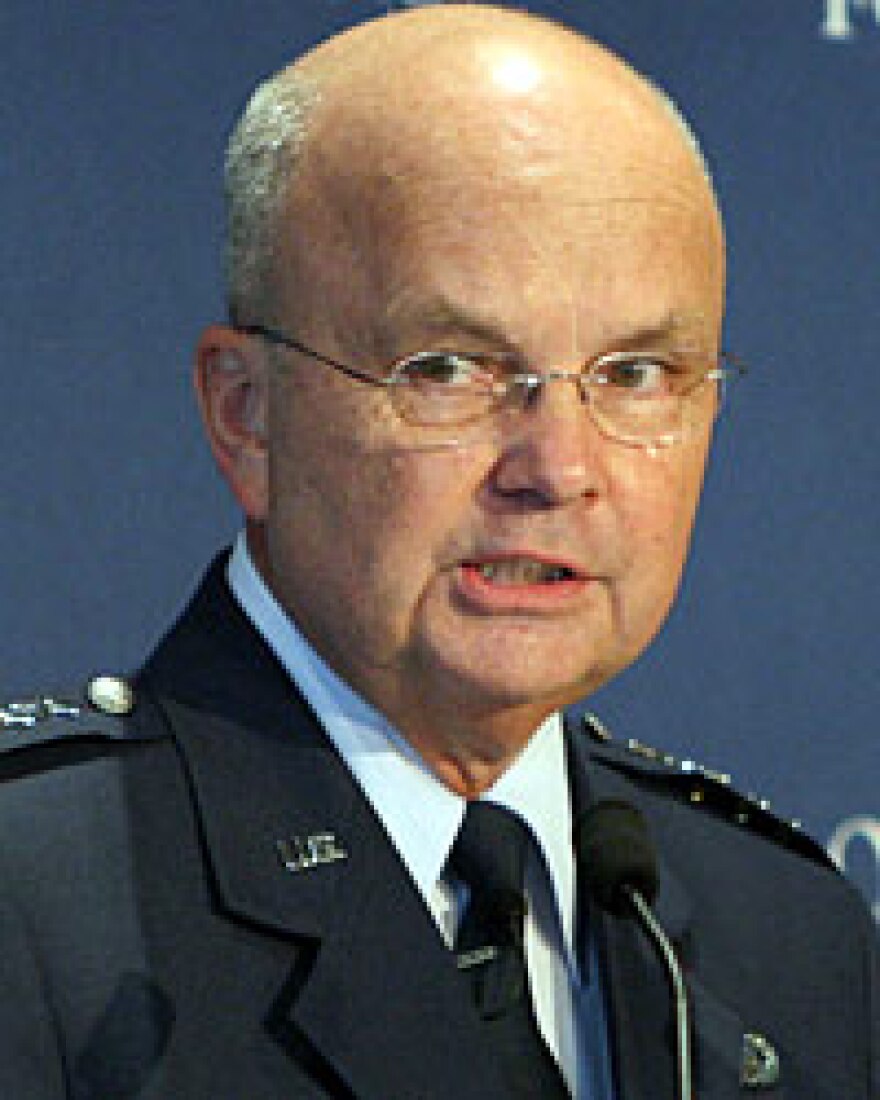
CIA Director Michael Hayden is scheduled to appear before the Senate Intelligence Committee on Tuesday to discuss why his agency videotaped the interrogation of terrorism suspects and then destroyed the tapes.
The Justice Department and the CIA say they will investigate the destruction of the tapes, which are believed to have shown interrogators using especially harsh methods.
Just a week ago, the CIA and other agencies released a national intelligence estimate that concluded Iran halted its nuclear weapons program four years ago. Because it challenged the Bush administration's claims, the estimate was taken as a demonstration of the spy agency's independence.
Praise for NIE
Democrat Jay Rockefeller, the chairman of the Senate Intelligence Committee and a longtime CIA critic, praised the estimate as an example of sound analysis.
But the CIA did not bask in glory for long. On Thursday came the news that the agency videotaped interrogations of terrorism suspects and then destroyed the tapes — despite warnings from Congress not to do so. The tape story quickly overshadowed the Iran story: It combined in one scandal two big issues —- the CIA's interrogation policies and CIA accountability.
The news of the tapes broke just as Congress was advancing legislation that would bar the agency from using extreme procedures to force detainees to talk — such as waterboarding, which simulates drowning.
Tom Malinowski, Washington advocacy director for Human Rights Watch, said the CIA may have stopped videotaping interrogations just a few months after it started because the agency realized the images might be inflammatory.
"Certainly one possibility is that they stopped because they began to realize that what was on those videotapes was potentially dynamite, that if people in the future could see the visual images of prisoners being waterboarded they would be horrified even more than if they read the description of that technique in the newspaper," Malinowski said.
The CIA's congressional overseers meanwhile seized on another point — that the agency apparently destroyed the videotapes on its own. Three days after praising the work of the CIA, Rockefeller was outraged.
"They destroyed it without letting us know, without asking our permission, without consulting, without informing us in any way. They just did what the CIA likes to do," Rockefeller said.
The charge that the CIA sometimes does whatever it wants is an old one.
In 1975, Democratic Sen. Frank Church of Idaho led a congressional inquiry into CIA secret actions, charging that the agency sometimes acted "like a rogue elephant."
Loch Johnson, Church's staff director, said Church wanted to make the intelligence agencies a part of the U.S. government that would not be exempt from a system of checks and balances.
History of CIA Oversight
As an outgrowth of the Church committee proceedings, the House and Senate intelligence committees were given oversight of the nation's intelligence agencies.
Johnson, who is now a professor at the University of Georgia, has been monitoring CIA oversight ever since his days on the Hill.
He said the agency's apparently unilateral decision to destroy the videotapes raises the question of whether the agency has fulfilled its obligation to keep Congress informed of its actions.
"Starting in 1975, we had a whole new era of serious oversight when it came to intelligence, and this flies in the face of that whole effort," Johnson said.
Hayden, the current CIA director, was not at the agency at the time the interrogation videotapes were made, nor was he there when they were destroyed. He has said repeatedly he is a firm advocate of congressional oversight.
When Hayden appears on Capitol Hill, he will undoubtedly face tough questions on that point, as well as on the interrogation practices that gave rise to this new scandal.
Copyright 2023 NPR. To see more, visit https://www.npr.org.








